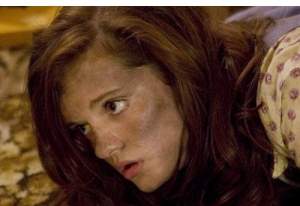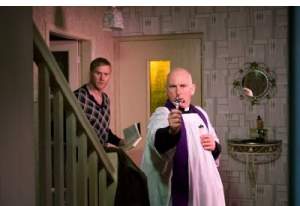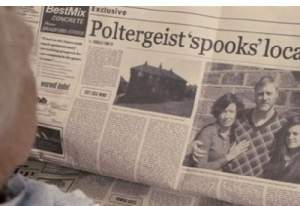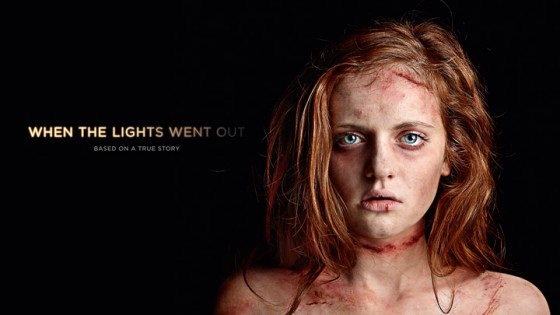Ironically the silver age of British horror films (late period Hammer and Amicus) was in its decline by 1974, but by locating the story to a period familiar to the parents of the target audience, it dislocates the haunting from modern interminable franchises like Paranormal Activity and gives the story a certain sense of gravitas and additional realism.

The story is based on a real case of reported poltergeist activity in the same house where the film was lensed - 30 East Drive, Chequerfield Estate, Pontefract - but moves the story forward 8 years as the year before 'the summer of love' rather than post oil crisis, three-day-week England was a less unnerving time to live in the UK. The backdrop of high fuel prices and unemployment gives the story an echo of the current economic crisis in the UK and adds to the stress the family in the story is under, before adding the hauntings of their new council house, with the title of the film not only referring to the poltergeist influenced blackouts in the house, but also the real possibility of electricity being cut due to the impoverished infrastructure of the time.
However, the socio-economic backdrop flavours the film rather than making it a dour prospect, and also adds charm in other respects, such as the non PC language of the lead character - impressive newcomer Tasha Connor - and her schoolmates as well as the retro soundtrack which includes The Sweet and John Denver. Elsewhere the setting provides laughs, such as Kate (Shaun of the Dead) Ashfield's desire for an avocado themed kitchen, but the acceptability of violence against children, which would see both parents of the haunted girl prosecuted in the modern day, increases the stakes and our understanding on why she might want to befriend a presence from beyond the grave.

The film's executive producers Bil Bungay (Moon) and Deepak Nayar (Dredd 3D) show the confidence the production team had in this project becoming an indie hit and indeed writer / director Pat Holden rarely puts a foot wrong. Only an over-reliance on CGI in the final scene over-eggs the pudding a little, but excellent cinematography, sound design and performances by a cast that also includes British stalwarts Peter Egan (Chariots of Fire) and Gary Lewis (Shallow Grave) make for an excellent package and a commendable addition to the current renaissance of British horror.

When the lights went out is currently screening in cinemas in Hull, Sheffield, Leeds and Bradford and goes on wide UK release on September 14th 2012.
When the Lights Go Out from Pat holden on Vimeo.
